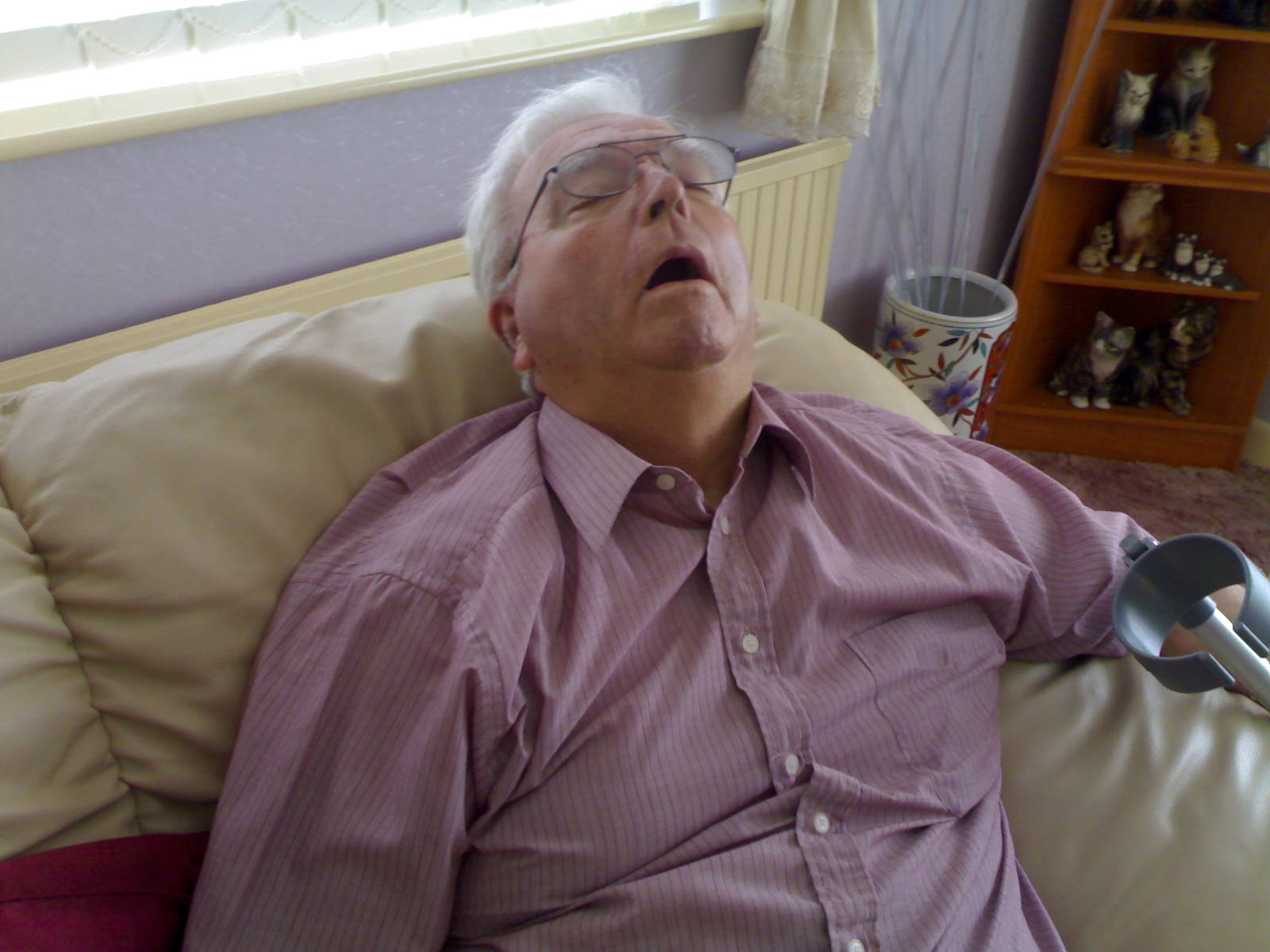 Heavy Snoring, Sleep Apnea May Signal Earlier Memory and Thinking Decline Heavy snoring and sleep apnea may be linked to memory and thinking decline at an earlier age, according to a study published in the online issue of Neurologyå¨, the medical journal of the American Academy of Neurology. The research also suggests that treating the disorders with a breathing machine may delay the decline. ÛÏAbnormal breathing patterns during sleep such as heavy snoring and sleep apnea are common in the elderly, affecting about 52 percent of men and 26 percent of women,Û said study author Ricardo Osorio, MD, with the NYU Langone Medical Center in New York. For the study, the medical histories for 2,470 people ages 55 to 90 were reviewed. Participants were categorized as either free of memory and thinking problems, in early stages of mild cognitive impairment (MCI), or with AlzheimerÛªs disease. The researchers also looked at people with untreated sleep breathing problems versus those without the sleep breathing problems and also untreated versus treated people with sleep breathing problems. The study found that people with sleep breathing problems were diagnosed with MCI an average of nearly 10 years earlier than people who did not have sleep breathing problems. For example, when researchers examined only people who developed MCI or AlzheimerÛªs disease during the study, those with sleep breathing problems developed MCI at an average age of 77, compared to an average age of 90 for those who did not have sleep breathing problems. Among that group, those who had sleep breathing problems also developed AlzheimerÛªs disease five years earlier than those who did not have sleep breathing problems, at an average age of 83 versus 88. The researchers found that people who treated their sleep breathing problems with a continuous positive airway pressure (CPAP) machine were diagnosed with MCI about 10 years later than people whose problems were not treated, or at age 82 instead of age 72.
Heavy Snoring, Sleep Apnea May Signal Earlier Memory and Thinking Decline Heavy snoring and sleep apnea may be linked to memory and thinking decline at an earlier age, according to a study published in the online issue of Neurologyå¨, the medical journal of the American Academy of Neurology. The research also suggests that treating the disorders with a breathing machine may delay the decline. ÛÏAbnormal breathing patterns during sleep such as heavy snoring and sleep apnea are common in the elderly, affecting about 52 percent of men and 26 percent of women,Û said study author Ricardo Osorio, MD, with the NYU Langone Medical Center in New York. For the study, the medical histories for 2,470 people ages 55 to 90 were reviewed. Participants were categorized as either free of memory and thinking problems, in early stages of mild cognitive impairment (MCI), or with AlzheimerÛªs disease. The researchers also looked at people with untreated sleep breathing problems versus those without the sleep breathing problems and also untreated versus treated people with sleep breathing problems. The study found that people with sleep breathing problems were diagnosed with MCI an average of nearly 10 years earlier than people who did not have sleep breathing problems. For example, when researchers examined only people who developed MCI or AlzheimerÛªs disease during the study, those with sleep breathing problems developed MCI at an average age of 77, compared to an average age of 90 for those who did not have sleep breathing problems. Among that group, those who had sleep breathing problems also developed AlzheimerÛªs disease five years earlier than those who did not have sleep breathing problems, at an average age of 83 versus 88. The researchers found that people who treated their sleep breathing problems with a continuous positive airway pressure (CPAP) machine were diagnosed with MCI about 10 years later than people whose problems were not treated, or at age 82 instead of age 72.
